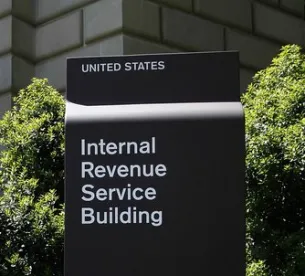On July 28, 2021, the IRS secured two victories in court. The first win allows the IRS to impose an additional 35% penalty on an individual as the sole owner and beneficiary of a foreign trust and the second court victory paves the way for the IRS to issue John Doe summonses in connection with its investigation of taxpayers who used an offshore service provider in Panama.
A. The Second Circuit held that the IRS can impose a $3,221,183 penalty on an individual in his capacity as both the sole owner and beneficiary of a foreign trust
The Second Circuit vacated a district court decision and held that an individual who is both the sole owner and beneficiary of a foreign trust may be subject to a 35% penalty, as the beneficiary receiving distributions from the trust in connection with the failure to file Form 3520 reporting the distributions.1 The Court’s decision in Wilson v. United States allows the IRS to assert the 35% penalty on the trust’s beneficiary in addition to the 5% penalty that applies to owners of foreign trusts for not filing a Form 3520 or 3520-A, respectively.
Joseph Wilson was the sole owner and beneficiary of a foreign trust. In 2007, Wilson liquidated the trust and distributed the trust’s assets, which amounted to $9,203,381, to himself. Wilson failed to file timely a Form 3520-A to report his ownership in the trust and Form 3520 to report his ownership in the trust and the distributions he received from the trust. Wilson died and the refund action was pursued by his estate.
Under Section 6048(b) of the Internal Revenue Code (Code), U.S. owners of a foreign trust are required to “submit such information as the Secretary may prescribe” and ensure that the trust files an annual return. Under Section 6048(c) of the Code, U.S. beneficiaries of a foreign trust are required to file a return reporting the distributions they received from the trust. If a beneficiary of a foreign trust fails to file a timely return, Code Section 6677(a) imposes a penalty on the beneficiary in the amount of 35% of the distribution from the trust. In connection with the reporting requirement for owners of foreign trusts, Code Section 6677(b) substitutes “5%” for “35%” and imposes a penalty in the amount of 5% of the gross value of the trust’s assets at the close of the year.
Wilson paid the 35% penalty and filed a claim for refund. Wilson argued that the IRS can only impose a 5% penalty on the owner of a foreign trust. The district court sided with Wilson and concluded that under the language of the statute, the IRS could not assess the 35% beneficiary penalty against the owner of a foreign trust because the substitution clause in Code Section 6677(b)(2) replaces 35% with 5%. The court found that the IRS could only assess the 5% penalty under Code Section 6677, “not both or either the 5% and/or 35% penalty” for untimely returns.2
The Second Circuit reversed the district court’s decision and held that there is no textual argument to support the position that the 5% penalty supplants the 35% penalty when the beneficiary is also the owner of a foreign trust. The Court found that the plain language of Code Sections 6048 and 6677 “requires that when an individual fails to timely report the distributions she receives from a foreign trust, the 35% penalty applies; her concurrent status as owner of the trust does not alter this rule.”
Although the Wilson case turned on an issue of statutory construction, it reflects the current climate in which taxpayers with non-compliant foreign assets are finding little relief in the courts.
B. IRS receives authorization to use John Doe summonses in connection with the investigation of taxpayers who have used offshore service providers to conceal assets
A federal court in the Southern District of New York granted the IRS’s request to issue John Doe summonses on 10 couriers and financial institutions for information regarding U.S. taxpayers who may have used the services of Panama Offshore Legal Services (POLS) and its affiliates (collectively, the POLS Group”) to conceal assets and evade U.S. taxes.
The IRS uses John Doe summonses as an investigative tool to seek information from a third party regarding unnamed taxpayers that may fail or have failed to comply with U.S. tax law. The John Doe summonses authorized by the Southern District of New York request information regarding U.S. taxpayers who used the services of the POLS Group from 2013 through 2020. The information sought by the IRS includes information regarding courier deliveries and electronic fund transfers between the POLS Group and its clients. The IRS is seeking this information to identify U.S. taxpayers who have not disclosed the existence of their foreign accounts and entities and who have failed to report the related income (See our May 12, 2021 GT alert).
POLS is a Panamanian law firm that provides offshore services to U.S. taxpayers. In connection with the IRS’s investigation into U.S. taxpayers who used the services of the POLS Group, the Department of Justice also filed petitions in the District of Minnesota and in the District of Colorado, asking that the IRS be allowed to serve John Doe summonses on MoneyGram Payment Systems, Inc. and Western Union Financial Services, Inc., respectively (See our May 12, 2021 GT alert).
It is apparent that the IRS and the Department of Justice are continuing to pursue account holders with accounts in foreign jurisdictions where the IRS believes there is a pattern of non-compliance that encompasses many taxpayers. We can expect to learn about further John Doe summonses in the future as the government expands its investigative activities of foreign account holders and the structures that serve to hide U.S. ownership.
Jennifer A. Vincent also contributed to this article.
1 Wilson v. United States, No. 20-603 (2d Cir. July 28, 2021).
2 Wilson v. United States, No. 19-CV-5037 (E.D.N.Y. Nov. 18, 2019).








 />i
/>i

